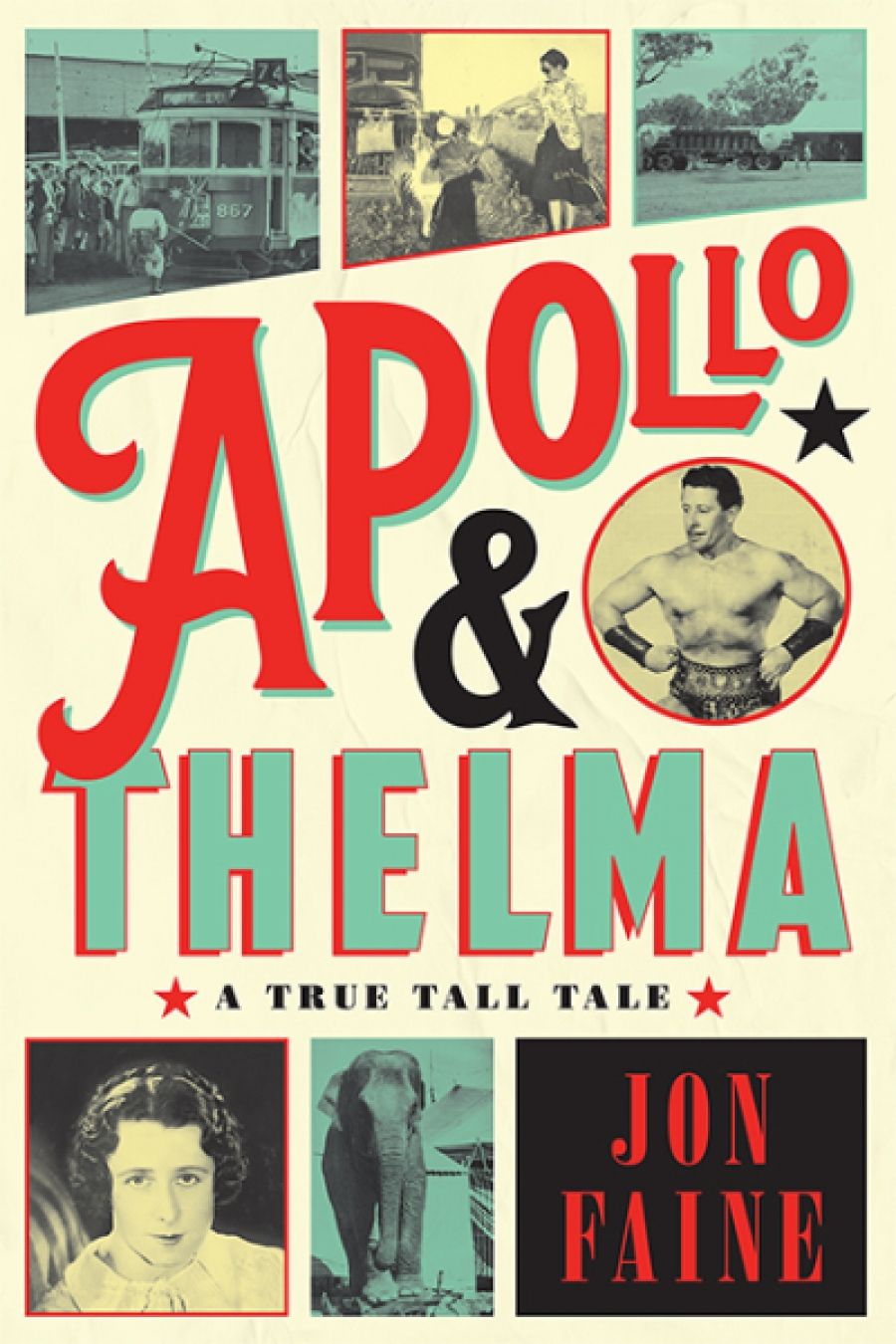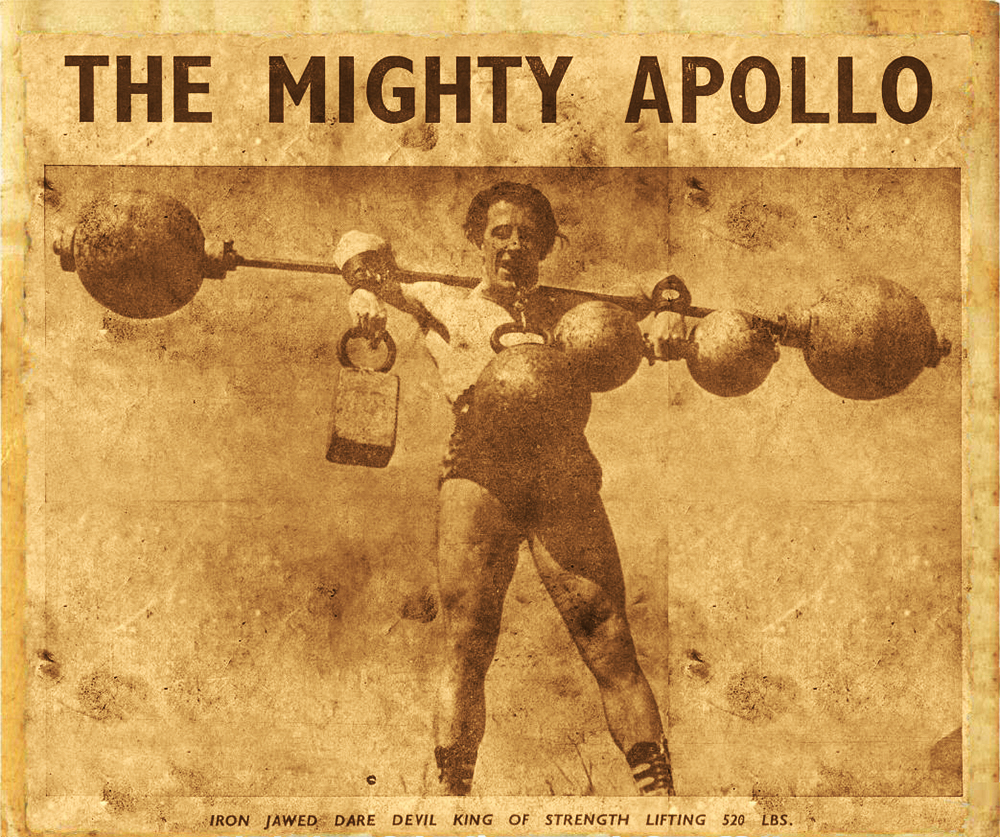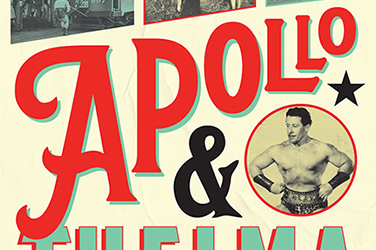
- Free Article: No
- Contents Category: Biography
- Review Article: Yes
- Article Title: Justice and identity
- Article Subtitle: Jon Faine’s compassionate approach to biography
- Online Only: No
- Custom Highlight Text:
A lesser writer than Jon Faine would have found many more cheap laughs in this extraordinary story. One of the two central characters, Paul Alexander McPherson Anderson, was better known as The Mighty Apollo. In what feels like a bygone age, he was the proprietor of The Mighty Apollo Martial Arts centre in West Melbourne. He lived there in spartan quarters, above a panel beater.
- Article Hero Image (920px wide):

- Article Hero Image Caption: Paul Alexander McPherson Anderson, aka 'The Mighty Apollo' (photograph legendarystrength.com)
- Alt Tag (Article Hero Image): Paul Alexander McPherson Anderson, aka 'The Mighty Apollo' (photograph legendarystrength.com)
- Featured Image (400px * 250px):

- Alt Tag (Featured Image): Michael McGirr reviews 'Apollo and Thelma: A true tall tale' by Jon Faine
- Book 1 Title: Apollo and Thelma
- Book 1 Subtitle: A true tall tale
- Book 1 Biblio: Hardie Grant, $45 hb, 373 pp
- Book 1 Readings Link: booktopia.kh4ffx.net/LPBjPj
The beauty of this book is that Jon Faine doesn’t believe in freak shows. He wants to find the bedrock of humanity on which this extraordinary personality was built. Many Victorians would be familiar with Faine’s daily presence for many years on ABC morning radio. He was a kind of cultural anchor point, joking with Red Symons or pushing the full range of politicians on matters they may well have preferred to avoid. He had a mind for issues of justice, whether they came in the aftermath of bushfires in Australia or natural disasters in Pakistan; he also kept listeners up to date on the progress of his veterans’ hockey team which sometimes sounded more interesting than the AFL.
I was once invited to co-host the conversation hour with him, a part of the program that ran between eleven and noon and in which the focus became more informal and guests were allowed to share their stories. Faine’s preparation was impeccable. His interest in my interests was genuine. He told me that the most impressive person he’d ever interviewed was John Howard, shaking the idea he had a leftist bias. It didn’t seem to matter that Faine and I saw the world through different eyes.
Faine was a young lawyer when he first met the Mighty Apollo. Paul’s sister had been found dead and now there were issues regarding her legacy. For many years, Old Ma (Thelma) Hawks had been the proprietor and lawmaker of a pub with the unlikely name of Wanda Inn. Her police force was comprised of fierce dogs. It was not an easy place to wander into, located some 800 kilometres from Darwin, possibly the most remote watering hole in the country. In terms of country, it was not far from Wave Hill, the Vestey cattle station which was the site of the Gurindji walk off and which became a central place in the emergence of the Indigenous land rights movement.
Wanda Inn was more than just a pub: it was a frontier. Thelma never allowed Indigenous people to set foot inside her premises but she was happy to charge them exorbitant prices for grog. The conduct of the place was shameful. In 1981, Thelma died and her estate was left to three young men – Paul, Mark, and Bruce – the sons of her brother, Apollo. The boys’ mother, Rondahe, had abandoned them.
As the tale gathers momentum, it effortlessly embraces a wide range of issues of justice and identity that still smoulder at the heart of contemporary Australia. Faine’s treatment of this cavalcade of characters is superb. Nobody is trivialised, nobody is idolised. The book has compassion for the weakness of characters who present to the world as towers of strength. Faine is not an easy man to bluff.
Faine weaves the story of Apollo and Thelma in and around his own coming of age and improbable emergence as a broadcaster. He met the Anderson family as a tie-wearing trainee lawyer; working in a city office came as a kind of culture shock. Faine describes how he discovered the real possibilities of the profession when he also began working in legal aid in Fitzroy. Here he learned to see law from the perspective of those on society’s lower rungs. Fitzroy and the city were almost as foreign to each other as Wanda Inn and the sophistication of the Gurindji who saw thousands of years of subtlety thrown over by beef and beer. Faine’s sympathies were deepened by being the stepfather of an Indigenous son, Nigel.
There is one particularly vivid recollection in this book. Faine was the MC at Frank Hardy’s memorial service, which was held in a packed Collingwood Town Hall in 1994. Hardy, the author of Power without Glory, had communist leanings and was a prominent advocate for the Gurindji at Wave Hill. His book, The Unlucky Australians, is impassioned. As a young priest, I was taken along because a mutual friend had told Hardy’s partner, Jenny Barrington, that she would manage to get a Catholic priest to the service, whether by hook or by crook. I was a bit nervous, but at the wake I had great conversations and many laughs with notables of the communist world, people I was brought up to believe were the devil incarnate. They were no such thing. They were just great characters trying to make sense of life without resorting to clichés. As was I. As is this book. That is what makes it irresistible. It delicately shows all the colours of the human catastrophe.


Comments powered by CComment